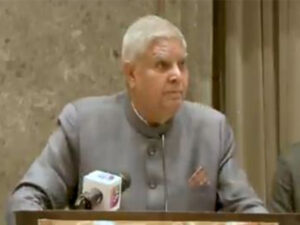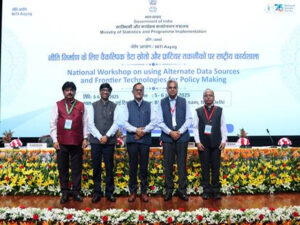“India following zero-tolerance policy towards terrorism”: Rajnath Singh highlights Op Sindoor, calls for global unity

New Delhi [India], June 7 (ANI): Defence Minister Rajnath Singh on Saturday asserted that India has demonstrated a successful strategy to defeat terrorism, laying out five key positions on how the global community can uproot such activities, and assured retaliation against Pakistan-sponsored terrorism while showing zero tolerance against this menace.
In an article titled “We’ve shown how to defeat terror,” published in an English Daily, Singh reflects on India’s response to the April 22 Pahalgam terror attack and India’s subsequent response through Operation Sindoor, emphasising the nation’s resolve under Prime Minister Narendra Modi.
“Under the leadership of PM Shri Narendra Modi, India is following a zero-tolerance policy towards terrorism. Fighting against terror is not optional but it’s our collective duty. It’s high time the global community unites to uproot this menace from its roots. Read my article… where I reflect on India’s fight against terror and the path forward for the world,” the Defence Minister stated in a post on X.
https://x.com/rajnathsingh/status/1931182440459968682
In another post, he further added that terrorism was a whip to humanity, referencing another article published in another Hindi Daily, noting the need for global unity and measures to take effective action against terrorism.
“Terrorism is a scourge on humanity. India’s stand under the leadership of Prime Minister Narendra Modi is very clear, and that is of zero tolerance. In my article… I have stressed the need for global unity against terrorism and discussed the measures available to the global community to take effective action against terrorism,” Singh stated in another post on X.
https://x.com/rajnathsingh/status/1931184330216284403
In the early hours of May 7, Indian Armed Forces successfully hit nine terror camps using special precision munitions in a coordinated operation called Operation Sindoor, destroying four camps in Pakistan, including Bahawalpur and Muridke, and five in Pakistan-occupied Jammu and Kashmir (PoJK).
The strikes on all nine targets were successful, which targeted top Jaish-e-Mohammed (JeM) and Lashkar-e-Taiba (LeT) leaders involved in sponsoring terrorist activities in India.
Following the attack, intense clashes took place between India and Pakistan, with Pakistan’s attempted drone attacks on Indian cities along the International Border and Line of Control (LoC) and shelling along the LoC.
India also retaliated with targeted strikes on Pakistani military installations, causing significant damage. After which, a cessation of hostilities between the two nations was agreed on May 10. (ANI)
This story is not been edited by Take One Television & Digital Network Staff and is auto-generated from syndicated feed






